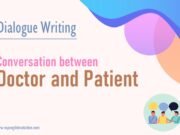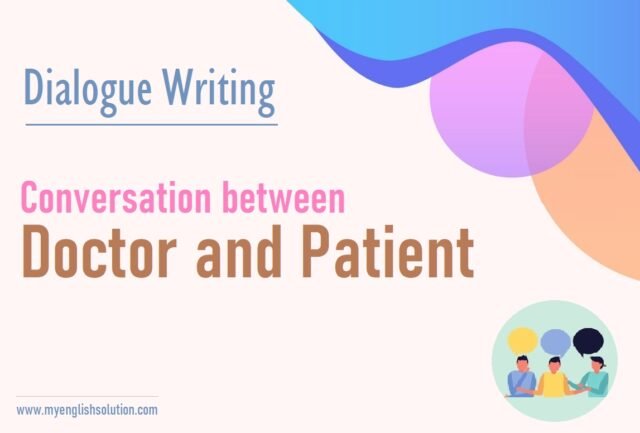Usually, when doctors and patients talk, it’s about serious stuff like sickness symptoms or getting better after surgery or taking medicine. That’s why it’s important to keep the conversation serious and use formal language. Sometimes, there are lots of medical terms, so be sure to include them carefully.
Doctor: Good afternoon! How can I help you today?
Patient: Hi, Doctor. I’ve been having some headaches and occasional dizziness lately.
Doctor: I see. How long have you been experiencing these symptoms?
Patient: It’s been about two weeks now.
Doctor: Okay. Have you noticed any patterns or triggers for the headaches and dizziness?
Patient: Not really. They just come and go throughout the day.
Doctor: Got it. Let’s check your blood pressure and do a quick examination to start. Have you had any recent changes in your lifestyle or stress levels?
Patient: Well, work has been a bit stressful lately, but nothing major has changed.
Doctor: Alright. Stress can contribute to these symptoms. After the examination, we might consider some lifestyle adjustments and possibly run a few tests. In the meantime, make sure you’re staying hydrated and getting enough rest.
Patient: Sure, Doctor. I appreciate your help.
Doctor: No problem. We’ll work together to figure this out. If the symptoms persist or worsen, let me know. We’re here to address your concerns.
also read:
| EBOOK: “100 ENGLIH GRAMMAR WORKSHEETS” |
| ENGLISH GRAMMAR_1 |
| ENGLISH GRAMMAR_2 |
| GRAMMAR: SPOT THE ERROR |
| USEFUL EXPRESSIONS IN ENGLISH SPEAKING |
| WORD FORMATION PROCESSES |
| PHONETICS |


















































